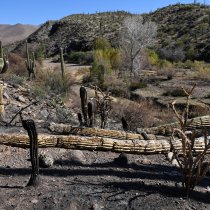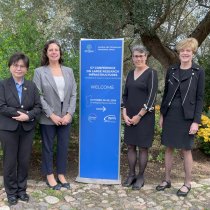Seeking grad students and early career scientists for NEON's first Data Institute
February 12, 2016
The inaugural Data Institute will take place at NEON headquarters in Boulder, CO from June 19-25, 2016. The Institute provides a unique opportunity for participants to gain hands-on experience working with open data using well-documented reproducible methods. Participants will also gain important applied knowledge about using heterogeneous remote sensing data sources to answer spatio-temporal ecological questions. Applications are due by March 28, 2016.
Using remote sensing data for ecological research
Through data intensive, hands-on activities, we will cover topics including:
- Fundamental concepts required to open, visualize and process data stored in different coordinate reference systems, and at different resolutions / spatial scales.
- The importance of thoughtful, well-documented open science workflows and methods.
- Scientific spatio-temporal applications of remote sensing data using open tools such as R, Python and QGIS.
- Using remote sensing data products with in situ data to quantify uncertainty associated with estimates of vegetation structure, composition & chemistry.
This year, the Institute will cover the NEON’s Airborne Observation Platform which includes a full waveform and discrete return LiDAR, a hyperspectral imaging spectrometer and a high resolution RGB camera. Participants will learn how remote sensing processing methods impact how data can be used in science. A tour of the NEON calibration facilities will also demonstrate the importance of calibration to reduce data uncertainty when collecting and processing data.
Are you interested in heterogeneous ecological, biological and remote sensing data?
This Institute is geared towards graduate students and early career scientists with some programming experience who want to develop critical skills and foundational knowledge for working with heterogeneous spatio-temporal data to address ecological questions. Qualified applicants are required to have some prior basic experience in a programming environment (R or Python). All participants must bring their own laptop to participate in the hands-on data activities.


